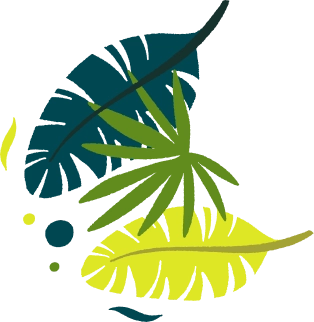

You've probably heard the term "Net Zero" thrown around a lot lately. Simply put, it's when we balance out the greenhouse gases we pump into the atmosphere with what we take out. Think of it like a seesaw, for every bit of CO2 or methane we release, we need to remove or absorb the same amount. The goal? To stop adding to the total greenhouse gases hanging around up there.
How do we get there? It's a mix of cutting emissions where we can, switching to renewable energy, and using carbon offsets for what we can't eliminate yet. The climate scientists at the IPCC aren't mincing words that we need to hit Net Zero by 2050 if we want to keep global warming to just 1.5°C above pre-industrial levels. Any hotter, and we're looking at some pretty serious consequences.
Here's something that might surprise you: tourism is responsible for roughly 8 to 11% of all global greenhouse gas emissions. That's huge. From jet fuel to hotel air conditioning, the industry has a real responsibility to clean up its act. It's not just about ticking boxes anymore but about protecting the places we love to visit.
Jungle Boss set out with a simple idea: bring people closer to nature while actually protecting it. Sounds straightforward, but putting it into practice in Vietnam's Quang Binh province has meant rethinking everything about how adventure tourism works.
Here's what most people don't realize about the area around Phong Nha Ke Bang before tourism arrived where locals had few options beyond logging and hunting to make ends meet. The forest was their grocery store, their lumber yard, their everything. You can imagine what that did to the ecosystem.
When Jungle Boss started operating in the national park, they made a deliberate choice: hire locally. Now, instead of taking from the forest, these same people are protecting it. They've become guides, porters, and conservation partners. It's amazing how quickly someone goes from hunting in the forest to protecting it when their livelihood depends on keeping it pristine for visitors.
Here's what's different about a Jungle Boss trip: you won't find any ATVs, motorboats, or helicopters. Everything is powered by good old fashioned human energy. Trekking through jungle paths, exploring caves, ziplining across valleys, it's all about using your own two feet (and occasionally your hands).
Sure, it means you'll work up a sweat, but there's something deeply satisfying about exploring nature under your own power. Plus, zero emissions means you can enjoy that pristine jungle air without the irony of contributing to pollution while you're there.
Single use plastic in tourism is everywhere. But out in the jungle, every piece of trash matters. That's why Jungle Boss hands you a reusable one liter water bottle at the start of your trek. No plastic bottles bouncing around in your backpack, no guilty pile of empties at the end of the day. When you reach camp, you simply refill and keep going.
At mealtimes, forget those flimsy disposable plates and forks. Everything is reusable, proper dishes that get washed and used again. It might seem like a small thing, but when you're deep in a national park, knowing you're not leaving a trail of plastic behind feels pretty good.
Some of the smartest solutions are the ones you might not even notice. Take soap, for instance. Regular soap can mess with delicate water systems in the jungle, so Jungle Boss provides biodegradable soap that breaks down harmlessly.
And yes, we need to talk about toilets. Instead of the, shall we say, "natural" approach that can contaminate water sources, they use portable bio-toilets with rice husks to manage waste. It's not glamorous, but it works, and it keeps the forest clean.
Even cooking is thought through. Rather than cutting down trees for firewood (which would defeat the whole purpose), porters carry in gas canisters. No smoke filling the campsite, no damage to the forest.
While some eco lodges build "sustainable" permanent structures, Jungle Boss takes a different approach. Everything is temporary. Tents go up for your stay, then come down completely. Next week's group won't even know you were there. The forest remains untouched, exactly as it should be.
Every tour includes forest service fees paid directly to Phong Nha Ke Bang National Park. This money goes straight back into conservation, paying rangers, maintaining trails, and protecting wildlife. It's not charity; it's investing in keeping these places wild for the next generation of adventurers.
Perhaps the most important thing happens around the campfire at night. Guides don't lecture you about the environment – they share stories. About the animals that have returned since protection increased. About the caves discovered just last year. About why that strange bird call means rain is coming.
By the time you leave, you don't just understand conservation intellectually rather you feel it. You've sweated up those hills, drunk that spring water, and slept under those trees. The forest isn't an abstract concept anymore; it's a place you know intimately.
Net Zero isn't just another buzzword or a box to tick for marketing. For the tourism industry, and especially for companies like Jungle Boss, it's about fundamental change. It's about proving that you can run a successful tourism business that enhances nature rather than exploiting it.
The clock is ticking toward 2050, and every choice matters. Whether it's a small operator in Vietnam's jungles or a massive hotel chain, the tourism industry is finally waking up to its responsibility. The question isn't whether to change anymore but how fast we can make it happen.
The good news? When it's done right, sustainable tourism doesn't feel like a compromise. It feels like the adventure it was always meant to be.
Get the latest information about our tours and special offers!